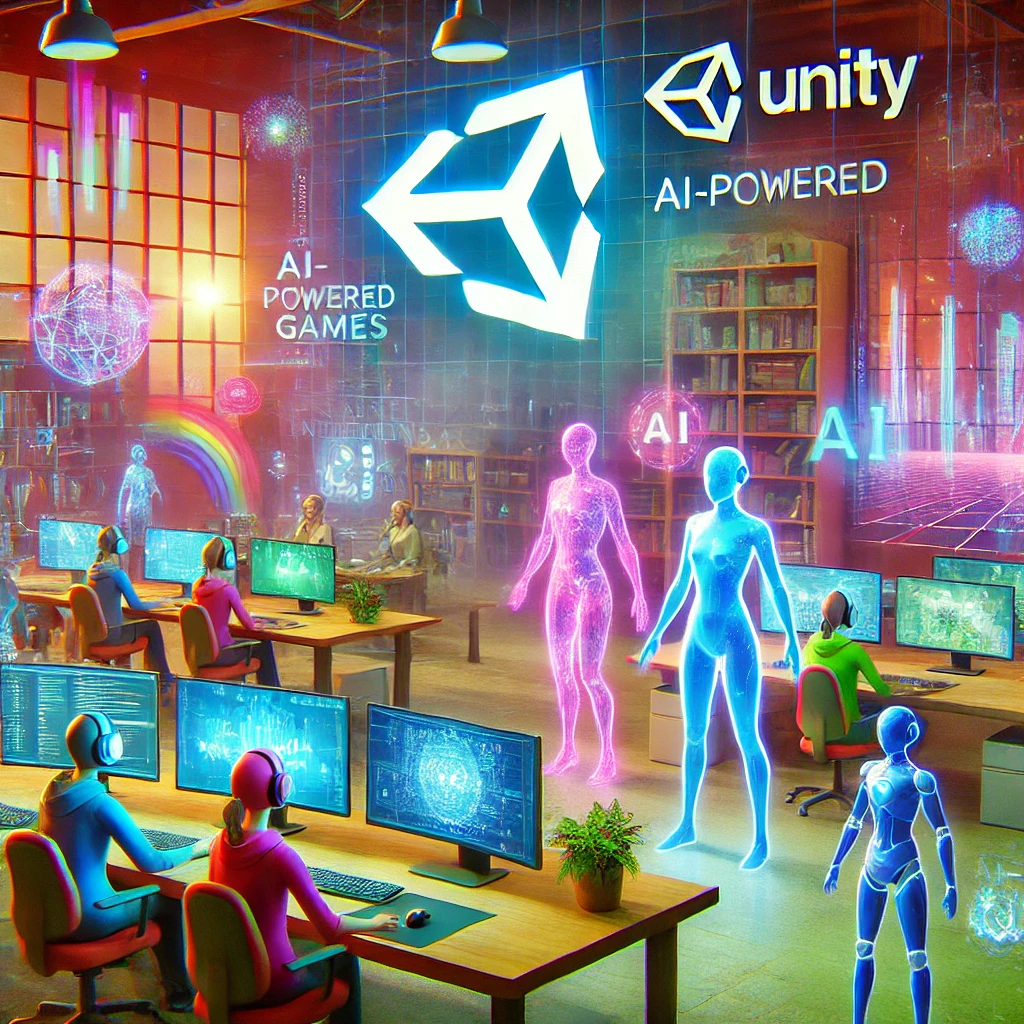Integrating AI in Unity-Based Games

Since it’s AI season, let’s briefly see how we can add AI using Unity in games. There are other ways of using AI to aid game design but let’s only focus on development for now.
AI in game development is all about using algorithms and machine learning techniques to make non-player characters (NPCs) and game environments smarter. Instead of relying on scripted behaviors, AI-driven entities can learn, adapt, and make decisions based on what players do. This leads to gameplay that’s more realistic and engaging.
Unity and AI
Games have always had some form of AI in them since forever. Whether it’s making NPCs, pathfinding etc. If you’ve not used AI in Unity before, I suggest checking the following out:
- ML-Agents Toolkit: Unity’s Machine Learning Agents (ML-Agents) toolkit is great! It lets us create intelligent agents using reinforcement learning, allowing them to learn from their interactions within the game environment. Learn more about ML-Agents.
- NavMesh: Unity’s Navigation Mesh (NavMesh) system helps NPCs find their way around complex terrains and avoid obstacles dynamically. It’s like giving your game characters a GPS! Explore NavMesh.
- Behavior Trees: With behavior trees, we can model complex decision-making processes for NPCs without having to write tons of code. This makes it easier to create sophisticated AI behaviors. Understand Behavior Trees.
- Third-Party Integrations: Unity’s flexibility means we can easily integrate third-party AI frameworks like TensorFlow to create custom AI solutions. Integrate TensorFlow with Unity.
The Next Steps
After you’ve done a bit of tinkering with the above, this is what’s happening right now.
- Adaptive Gameplay: AI can adjust the difficulty based on how good you are, making the game more personalized. Imagine a shooter game where enemies get tougher as you improve—keeps things interesting, right?
- Smart NPCs: AI-powered NPCs act more lifelike. They learn from their surroundings and player interactions, making their actions less predictable and more realistic. This makes the game world feel more alive.
- Procedural Content Generation: AI can generate game content on the fly. Whether it’s levels, maps, or even storylines, AI tailors everything based on player preferences and behaviors. Read about Procedural Content Generation.
- Player Analytics: AI analyzes player data to give us insights into behavior, preferences, and pain points. This helps us tweak game mechanics and design for a better player experience. Discover Player Analytics.
The Future?
The future looks bright for AI in Unity-based games, and here’s why:
- Deep Learning and Neural Networks: As deep learning tech gets better, our NPCs will be able to handle even more complex tasks and make decisions like real humans.
- AI-Driven Storytelling: Imagine games where the storyline evolves based on your choices, thanks to AI. This could lead to some seriously immersive experiences.
- Real-Time Adaptation: Future AI systems might adapt the game world in real-time, responding to player actions in ways we can’t even imagine right now. It could change environments, NPC behaviors, and mission objectives on the fly.
- VR and AR: Combining AI with VR and AR could create some mind-blowing experiences. Imagine intelligent agents in VR/AR environments interacting with players in super realistic ways.
Wrapping Up
AI is set to revolutionize game development. By leveraging Unity’s AI capabilities, we can create games that are more immersive, adaptive, and engaging than ever before. As AI technology continues to advance, the possibilities for Unity-based games are truly limitless. The future of gaming is intelligent, and it’s being built with Unity.
Let’s hope we’re not told to charge per install per NPC in the future though. xD
Thanks for reading, and happy developing!
